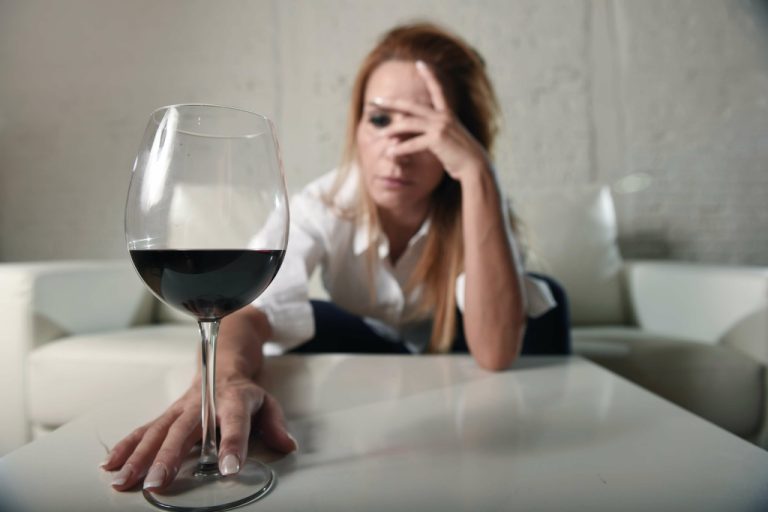“My personal experience with it is that everything is better,” she continued. The Princess Diaries alum shared in April 2024 that she is more than five years sober. As she told the New York Times, “That feels https://www.micq.org/page.php?id=233 like a milestone to me.” If I’m not sober, “recovery” is a foreign language, something I can’t really even recognize or feel. Unfortunately, sobriety doesn’t necessarily mean I’m in recovery at all.

This 60-minute presentation is set up so that you can watch at a time that works for you.
Many types of recovery support are available, and many people make use of more than one type at any time and may shift from one type of support to another as recovery proceeds and needs evolve. An increasing number of high schools and colleges offer addiction recovery resources (CRPS, or Collegiate Recovery Programs) for students, including mentors, workshops, dedicated lounges, and group meetings and https://antclub.org/node/11197 activities. Below is a sampling of many types of support that can be found. Sustaining behavior change until new patterns become ingrained is difficult under the best of circumstances. In leaving addiction behind, most people have to restructure their everyday life, from what they think about and who they spend time with and where, to how they use their time, to developing and pursuing new goals.
Learning Center
- Achieving full recovery goes beyond just abstaining from substance use.
- SMART Recovery is a secular, science-based program that offers mutual support in communities worldwide as well as on the internet and has specific programming for families.
- The Diagnostic and Statistical Manual of Mental Disorders (DSM) avoids the terms addiction and recovery.
- The question proposed is one I’ve thought about quite a bit; what I’m going to share is based on my own experience.
Otherwise, their behavior is at risk of cementing the problem in place. Under all circumstances, recovery takes time because it is a process in which brain cells gradually recover the capacity to respond to natural sources of reward and restore control over the impulse to use. Another widely applied benchmark of recovery is the cessation of negative effects on oneself or any aspect of life. Many definitions of recovery include not only the return to personal health but participation in the roles and responsibilities of society.
The recovery journey is different for different people.
After years of drug use, a cocaine addict may benefit from a support group in early sobriety that emphasizes overcoming powerlessness and unmanageability. Any test for alcohol or drugs will come up negative for a person in sobriety, because they are simply not using any drugs or alcohol. Recovery, on the other hand, has a more controversial definition.
What is Recovery? Understanding Addiction and Sobriety Paths?

Shortly after substance use is stopped, people may experience withdrawal, the onset of unpleasant physical and psychological symptoms —from irritability to shakiness to nausea; delirium and seizures in severe cases. Medications are also available to help treat addiction to alcohol and nicotine. The chronic nature of addiction means that for some people relapse, or a return to drug use after an attempt to stop, can be part of the process, but newer treatments are designed to help with relapse prevention. Relapse rates for drug use are similar to rates for other chronic medical illnesses.
- Other research pinpoints the values of cognitive behavioral therapy for relapse prevention, as it helps people change negative thinking patterns and develop good coping skills.
- Understanding these hurdles is pivotal in preparing yourself to effectively overcome them.
- Opioids cause both psychological and physical dependence, where cocaine mostly causes only psychological dependence.
- People in early recovery may also feel isolated and lonely if they choose to no longer spend time with friends who are actively using.
- The change destabilizes the adaptation the family has made—and while the person in recovery is learning to do things differently, so must the rest of the family learn to do things differently.
- But emotional sobriety isn’t just important because it serves as a method of relapse prevention; it is also a critical part of recovery because it offers the ability to lead a meaningful life – sober.
But emotional sobriety isn’t just important because it serves as a method of relapse prevention; it is also a critical part of recovery because it offers the ability to lead a meaningful life – sober. However, some people support a more flexible definition of sobriety, suggesting moderate substance use, when it does not interfere with function, may be part of sobriety. He also believes sobriety should be about more than just the absence http://aidb.ru/?aion=item_info&id=169400094 of substances and should include a purposeful and meaningful life. A mental health treatment program that works with drug abuse clients who are trying to overcome and addiction to cocaine or meth may do best by defining recovery differently from an opioid addiction treatment program. What is needed is any type of care or program that facilitates not merely a drug-free life but the pursuit of new goals and new relationships.
Quickly check your insurance coverage benefits for treatment

The Recovery Village helps thousands of people to begin their recovery each year, and our programs have allowed many people to begin a life free from addiction. If you or someone you love is struggling with a substance use disorder, contact us today to learn about treatment options that can work well for you. In Alcoholics Anonymous, members use the phrase “dry drunk” to refer to someone who has simply stopped drinking. This means that the person may continue exhibiting destructive behaviors, such as being dishonest, blaming and failing to keep commitments. Many of these people run the risk of relapsing because they have not made any fundamental changes to their behavior.
- It’s important to find the path that works best for you and to seek support and resources along the way.
- I realized that it was about SO much more than just ditching the booze.
- Abusing drugs and alcohol is symptomatic of a much deeper constellation of problems.
- There were a few who would have an almost instantaneous “awakening,” where the realization that a power greater than themselves could heal their problem would occur, but these were the exception.
- They may not have been alcoholic in the first place, but instead are heavy or problem drinkers (see my past post on differences between social drinkers, problem drinkers, and alcoholics for more information).



